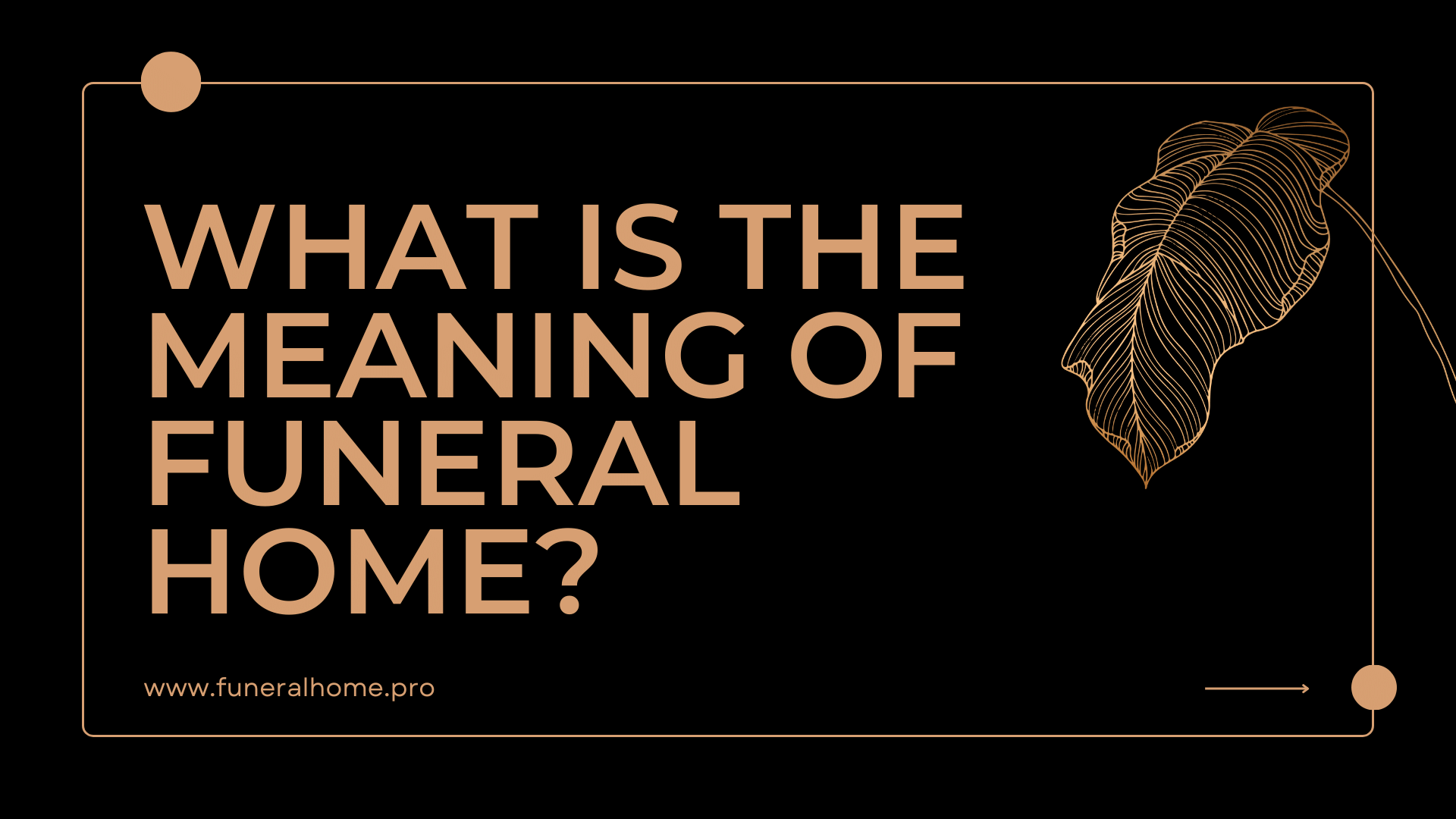The funeral home, also called a funeral parlor or mortuary, plays an important role in society by assisting grieving families at the difficult time of death.
But what exactly is a funeral house and what services does it provide to help honor the deceased? This article will explore the meaning and functions of this essential institution.
History of Funeral Houses
The modern funeral home system originated in the Victorian era as attitudes towards death began to shift. Prior to this, burial preparations often occurred at home. In the late 19th century, licensed funeral directors and embalmers professionalized death care services.
Funeral homes started addressing public health concerns over contagious disease transmission from corpses as well as demands for more dignified funerals from growing urban populations. Throughout the 20th century, the industry consolidated as many multinational chains now operate thousands of locations globally.
Types of Funeral Home Services
Core services offered by all establishments include organizing viewings or visitations, funerals or memorial ceremonies, filing necessary permits and transporting the deceased. Additional key services involve preparing and sheltering remains through tasks like:
- Embalming (disinfecting and slowing decomposition)
- Dressing/grooming the body
- Cosmetology to make the appearance more natural
- Supplying caskets, urns or alternative containers
- Headstone planning and ordering
- Flowers/memorial albums
- Vehicle fleet for processions
Funeral Staff Roles
Well-trained staff fulfill crucial roles to ease the grieving process. Licensed funeral directors guide families through arrangements while certified embalmers handle technical procedures safely. Administrative assistants handle paperwork and visitation hosting. Owners/managers oversee daily operations and community outreach programs.
Funeral Home Facilities
Establishments maintain various areas to accommodate inclusive ceremonies like visitation parlors, chapels, refreshment rooms and outdoor spaces. Private counseling offices also provide sensitive bereavement support. Professional and clean environments demonstrate respect.
Care for Grieving Families
From arranging ceremonies to counseling, funeral homes aim to ease practical and emotional burdens on mourners through compassionate support.
Preserving Heritage
Funeral rites reflect diverse cultural traditions, which homes respect by accommodating varied customs, languages and ceremonial needs.
Celebrating Life Stories
Visitations and services allow families to publicly reminisce on legacies and distribute memorabilia, continuing a legacy far beyond death.
Ethical Conduct
Integrity, confidentiality and lawful compliance with human remains policies are profession standards upheld for dignity, trust and regulatory compliance.
Financial Assistance
Homes counsel affordable burial options and assist with veteran’s benefits/insurance to help any family conduct ceremonies with sensitivity regardless of means.
Green End-of-Life Choices
Some promote natural burials and eco-friendly services reflecting renewed priorities around sustainability and nature connection at life’s end.
Community Education
Outreach programs boost understanding of afterlife arrangements, wellness and costs to help demystify mortality and encourage meaningful planning.
Global Presence
Major chains operate internationally, aiding overseas families locate deceased Americans or arrange shipments ensuring dignified closure regardless of residency.
Cultural Exchange
As populations diversify, funeral practices also evolve through cultural blending, new traditions and shared appreciation of humanity across theological differences.
Conclusion: The Meaning of Funeral House
At its core, a funeral home represents a place of comforting rituals that honor the life, memory and impact of those who passed.
Whether faith-based or secular in nature, services uphold human dignity even in death through professional guidance, meaningful tradition and community gathering that affirms a soul’s eternal worth long after physical vessels cease.
FAQ’s
Q: What types of licenses and regulations do funeral homes need to follow?
A: Funeral homes are licensed and regulated at the state level. They must be licensed as a funeral establishment and employ licensed funeral directors, embalmers and other staff. They are subject to health, safety and business regulations.
Q: How much do typical funeral services cost?
A: Costs can vary significantly but on average a traditional funeral costs between $7,000-$10,000. It depends on service type, casket or urn selection, transportation, burial plot and more. Direct cremations are more affordable starting around $1,000.
Q: What payment methods do funeral homes accept?
A: Most accept cash, checks, and major credit cards. Many also offer financing options like monthly payment plans or pre-paid funeral trusts to budget costs. Veterans benefits may also help cover some expenses.
Q: Is embalming always required?
A: No, embalming is not legally required except in certain circumstances like delayed burial/shipment. Families can generally choose direct cremation or burial without embalming which costs less.
Q: Can a funeral be held at a church or home instead of the funeral home?
A: Yes, funeral homes will arrange off-site services and often have vehicles to transport deceased and mourners. Location depends on family preferences and any religious/facility requirements.
Q: How can someone pre-plan their own funeral?
A: By setting appointments with local funeral homes to discuss preferences, costs can be locked in advance and less stress falls on grieving family later to make arrangements and decisions.

Hi, this is a comment.
To get started with moderating, editing, and deleting comments, please visit the Comments screen in the dashboard.
Commenter avatars come from Gravatar.